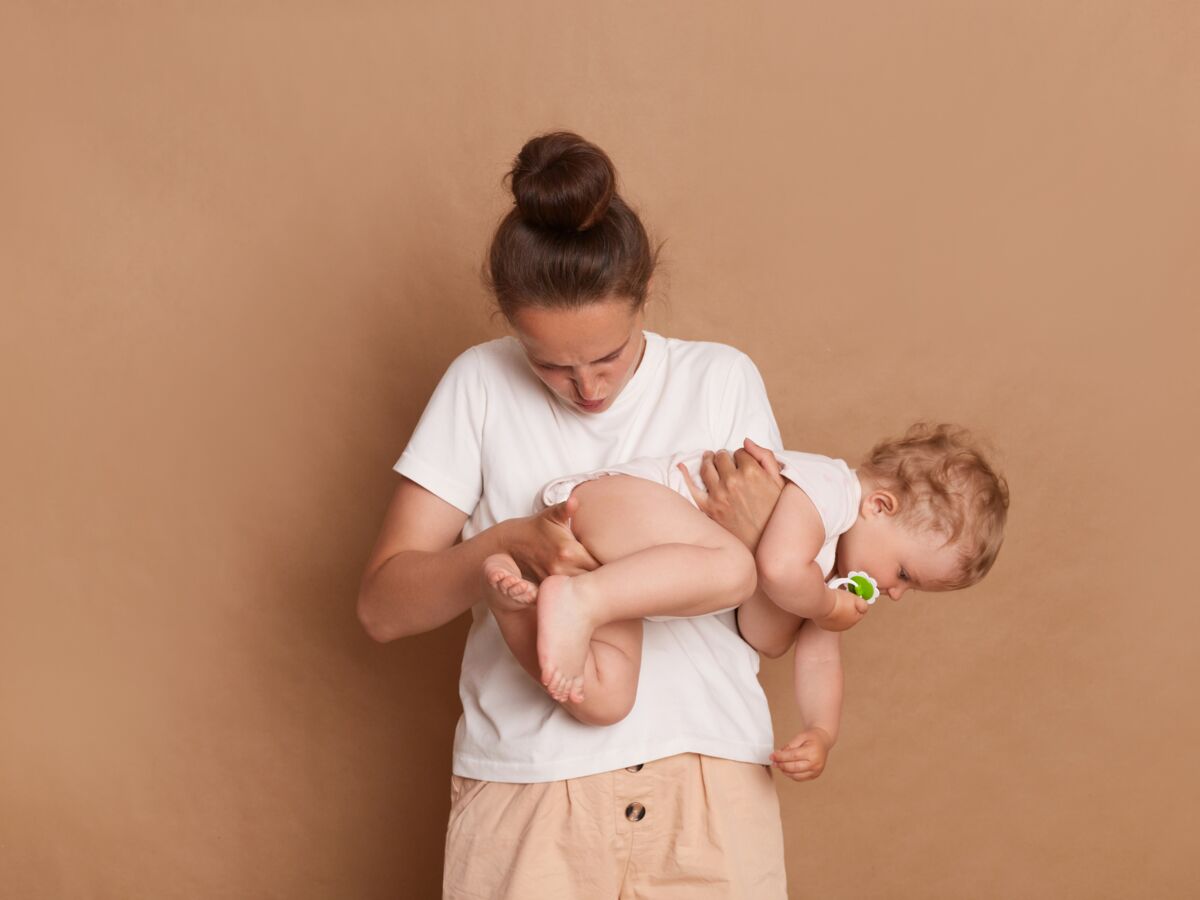A very common problem in children, diarrhea in babies can quickly become worrying and serious in toddlers. However, it can be difficult to detect in babies, and even more so when they are breastfed. Diarrhea in infants can be caused by different reasons, ranging from viral infections to food intolerances, and can last from a few days to a few weeks. It will then be qualified as chronic if it lasts for more than 3 weeks.
Recognizing diarrhea in babies
Babies having an immature digestive system, it can be caused by various factors. Often, it is due to an infection of the intestines by viruses, such as that of rotavirus gastroenteritis which rages most often in winter. It can also be due to bacteria, a bacterial toxin, a food intolerance or, more rarely, microscopic fungi.
Diarrhea is frequent passing of loose or watery stools that differs from the usual pattern. Diarrhea can sometimes contain blood or mucus. Identifying mild diarrhea can be difficult: the number and consistency of stools varies with age and diet in a healthy baby. For example, breastfed infants who are not yet consuming solid foods often have loose stools, which are considered normal. It is a sudden increase in the number of these loose stools that may then indicate diarrhea in these infants.
Common symptoms of diarrhea in babies
Diarrhea is a common condition in babies and young children. It is characterized by loose or watery stools that are more frequent than usual.
Common symptoms of diarrhea in babies include an increased number of stools, change in stool consistency, irritability, loss of appetite and signs of dehydration. During gastroenteritis, diarrhea can be accompanied by vomiting, headaches, fever and stomach aches. It is important to watch these symptoms carefully and act quickly to avoid dehydration.
Diarrhea in babies: when to consult urgently?
Any condition in the toddler needs to be watched very closely. The Health Insurance website advises: “If your infant (under 2 years old) has acute diarrhea (at least three liquid stools in a few hours) with or without vomiting, it is important to quickly consult his doctor or pediatrician. ”
Although in most cases diarrhea in babies is mild and goes away on its own within a few days, it should be monitored by caregivers. Indeed, some signs should be considered medical emergencies and require immediate consultation with a healthcare professional.
- Severe diarrhea, with more than one bowel movement per hour. It can cause rapid dehydration, especially in infants. Dehydration can have very serious consequences for the health of the child, in particular by affecting his electrolyte balance and by compromising the functioning of his organs.
- If the baby has a high fever in addition to diarrhea, it may be an infection.
- The presence of blood in the stool is a sign that should be evaluated by a medical professional without delay. It can be the result of severe irritation of the digestive system or be a symptom of other more serious underlying problems.
- A baby who refuses refuses to feed. It can also lead to weight loss and rapid dehydration.
- Signs of dehydration, such as very visible dark circles, persistent skin folds, impaired consciousness, hypotonia, drowsiness. Before the age of six months, the fontanel will also be monitored, which can be sunk in the event of dehydration.
- A change in behavior or a general deterioration in the baby’s state of health: crying, fever, jaundice, drowsiness…
Diarrhea in Infants: Monitoring for Symptoms
It is recommended to monitor the evolution of the child by weighing him if possible at home, in a PMI or a pharmacy in order to detect possible dehydration; by taking their temperature regularly; by counting the number of stools and vomiting but also by ensuring that he eats enough.
Self-medication to treat a child with diarrhea is not recommended. It is not recommended to give him anti-emetic drugs (against vomiting) or to try to stop his diarrhea with an anti-diarrheal such as loperamide (medicine that slows the progression of food and then stool in the digestive tract ). Smecta is prohibited in toddlers under two years old, they may contain low doses of lead.
Sources:
Vidal, Ameli, MSD Manuals, mpedia
Read also :
⋙ GERD in infants: how to recognize the symptoms of gastroesophageal reflux in babies?⋙ Chickenpox: symptoms, treatment and prevention
⋙ Premature baby: the 3 types of prematurity, possible sequelae and dedicated follow-up
